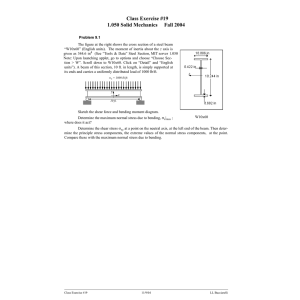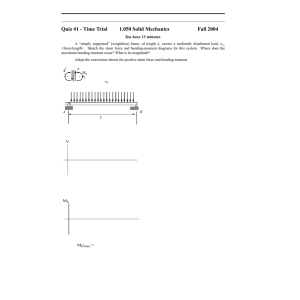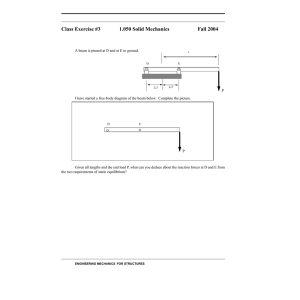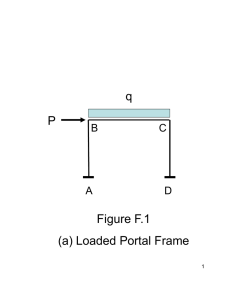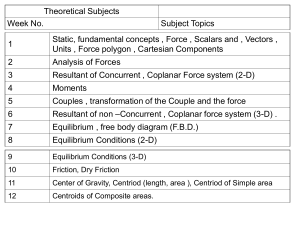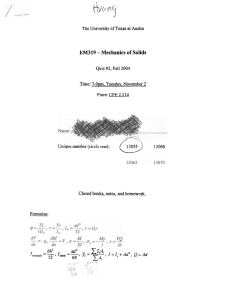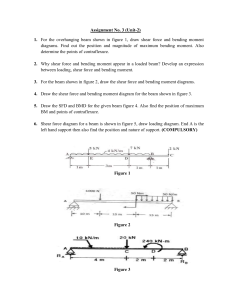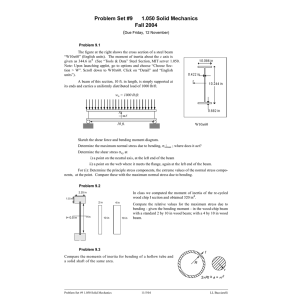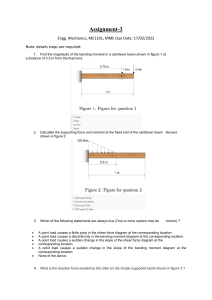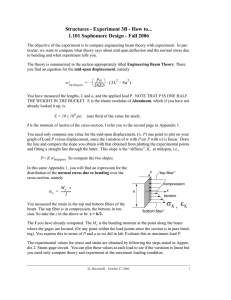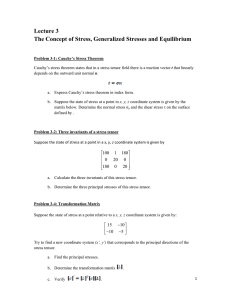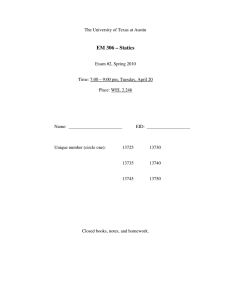Class Exercise #2 1.101 Structures Work
advertisement
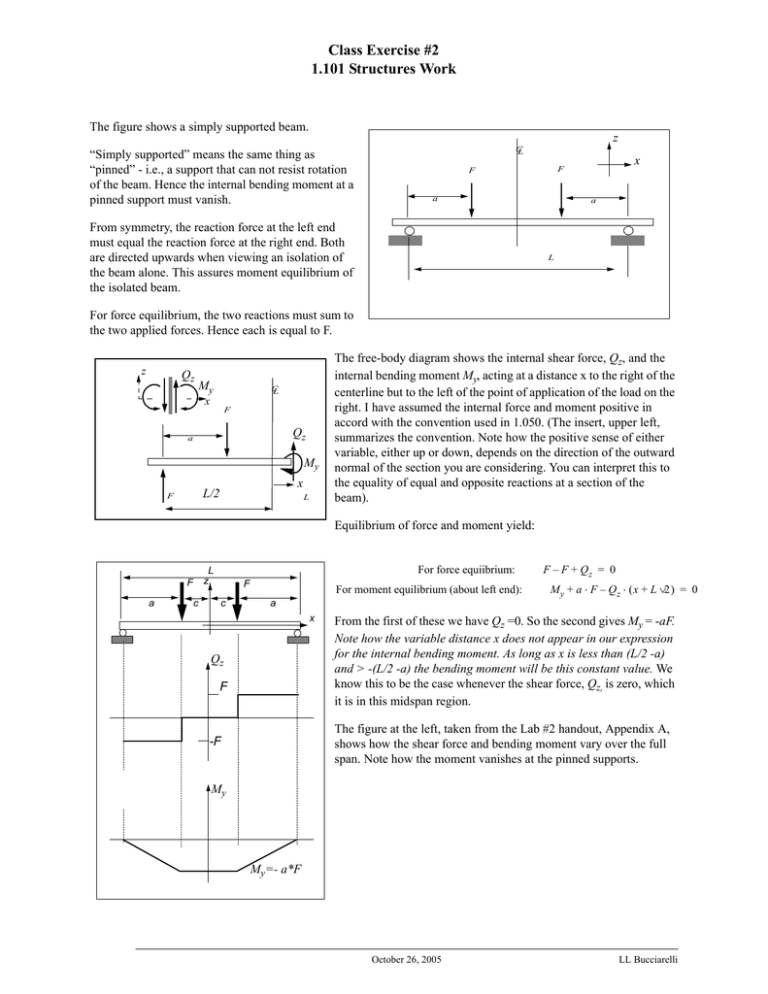
Class Exercise #2 1.101 Structures Work The figure shows a simply supported beam. z “Simply supported” means the same thing as “pinned” - i.e., a support that can not resist rotation of the beam. Hence the internal bending moment at a pinned support must vanish. C L a From symmetry, the reaction force at the left end must equal the reaction force at the right end. Both are directed upwards when viewing an isolation of the beam alone. This assures moment equilibrium of the isolated beam. x F F a L For force equilibrium, the two reactions must sum to the two applied forces. Hence each is equal to F. z Qz My C L x F Qz a My x L/2 F L The free-body diagram shows the internal shear force, Qz, and the internal bending moment My, acting at a distance x to the right of the centerline but to the left of the point of application of the load on the right. I have assumed the internal force and moment positive in accord with the convention used in 1.050. (The insert, upper left, summarizes the convention. Note how the positive sense of either variable, either up or down, depends on the direction of the outward normal of the section you are considering. You can interpret this to the equality of equal and opposite reactions at a section of the beam). Equilibrium of force and moment yield: a For force equiibrium: L z, F c F c For moment equilibrium (about left end): F – F + Qz = 0 M y + a ⋅ F – Q z ⋅ (x + L ⁄ 2) = 0 a x Qz F From the first of these we have Qz =0. So the second gives My = -aF. Note how the variable distance x does not appear in our expression for the internal bending moment. As long as x is less than (L/2 -a) and > -(L/2 -a) the bending moment will be this constant value. We know this to be the case whenever the shear force, Qz, is zero, which it is in this midspan region. The figure at the left, taken from the Lab #2 handout, Appendix A, shows how the shear force and bending moment vary over the full span. Note how the moment vanishes at the pinned supports. -F My My=- a*F October 26, 2005 LL Bucciarelli
